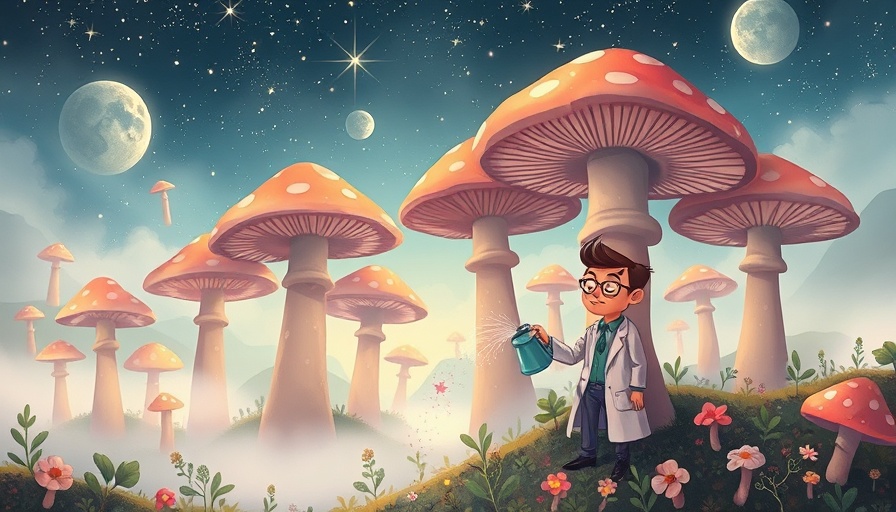
Uncovering the Future: The Rise of Pharmaceutical-Grade Mushroom Growers
As science increasingly validates the therapeutic benefits of psychedelics, a new career path is emerging that highlights the intersection of biotechnology and agriculture: pharmaceutical-grade mushroom growers. At the forefront of this burgeoning industry is Scott Marshall, head of mycology at Optimi Health in British Columbia, Canada.
From Underground to Approved: The Growing Legitimacy of Psychedelics
Marshall is not just any mushroom grower; he is one of a select few licensed in North America to cultivate psilocybin mushrooms legally since Canada established its compassionate-access program in 2022. With studies indicating that psychedelics like psilocybin and MDMA offer swift and enduring antidepressant effects, the demand for trained professionals in this field is on the rise.
Despite the setback the U.S. FDA faced regarding MDMA-based therapies, optimism remains. States such as Oregon and countries like Australia have begun to embrace the therapeutic potential of psilocybin, leading to an expanding market ripe for responsibly-cultivated mushrooms. As Marshall asserts, "By setting the bar for production and compliance with regulations, we’re helping expand scientific understanding and accessibility of psychedelics for therapeutic use." As the legal landscape evolves, the role of growers like Marshall will become even more vital.
A New Dawn for Careers: What it Takes to Cultivate Psychedelic Mushrooms
Historically, cultivating psychedelics was largely an underground endeavor. In 2018, Marshall transitioned from property management to becoming a mycologist after he was inspired by a friend's guidance and a cookbook. This journey marks a shift toward a legitimate approach in an industry transitioning from taboo to therapeutic. The complexity surrounding the cultivation process, especially for compliant, pharmaceutical-grade products, opens the door for specialized knowledge and skills.
Building a Sustainable Ecosystem: Investment and Innovation in Psychedelics
The psychedelics industry represents more than just mushroom production; it encompasses research facilities, therapy providers, and even psychedelic event organizers. According to experts like AnnaRae Grabstein, this diverse industry is attracting professionals from various backgrounds, contributing to a rich ecosystem that supports the psychedelic space. Marshall's work of producing high-quality mushrooms is central to creating this new reality, potentially leading to a monetary influx of over 22 million dollars backed by investors eager to understand and utilize these substances
Expanding Possibilities: The Future of Psychedelic Therapies and Job Opportunities
The prospects are promising; as regulations shift and more research supports the efficacy of psychedelics in treating mental health, the industry is poised for rapid growth. Careers in the psychedelic sector are manifold, from mushroom cultivators to integration specialists and psychedelic therapists. As public perception continues to evolve, individuals keen on entering this field can find numerous opportunities awaiting them. The performance of effective psilocybin mushrooms will play a pivotal role in not only the market but also in how society perceives these once-controversial substances.
Marshall’s journey illustrates a significant realignment within the agricultural landscape, where traditional roles are adapting to incorporate innovative practices and emerging fields. The future will not only require growers like him but also scientists, therapists, advocates, and educators, all working together to demystify psychedelics and promote their safe and responsible use.
In embracing this paradigm shift, communities can benefit from the therapeutic properties of psychedelics, which could lead to groundbreaking advancements in mental health care. Whether you’re already involved in the field or looking to navigate this new frontier, the shift towards pharmaceutical-grade mushroom cultivation is just the beginning of an extraordinary evolution in the health and wellness landscape.
 Add Row
Add Row  Add
Add 


Write A Comment